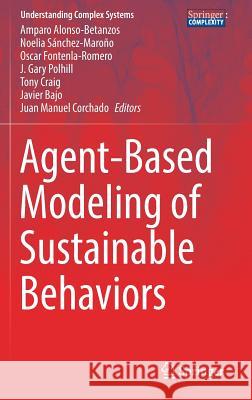Agent-Based Modeling of Sustainable Behaviors » książka
topmenu
Agent-Based Modeling of Sustainable Behaviors
ISBN-13: 9783319463308 / Angielski / Twarda / 2017 / 257 str.
Kategorie:
Kategorie BISAC:
Wydawca:
Springer
Seria wydawnicza:
Język:
Angielski
ISBN-13:
9783319463308
Rok wydania:
2017
Wydanie:
2017
Numer serii:
000307910
Ilość stron:
257
Waga:
0.56 kg
Wymiary:
23.39 x 15.6 x 1.75
Oprawa:
Twarda
Wolumenów:
01
Dodatkowe informacje:
Wydanie ilustrowane











